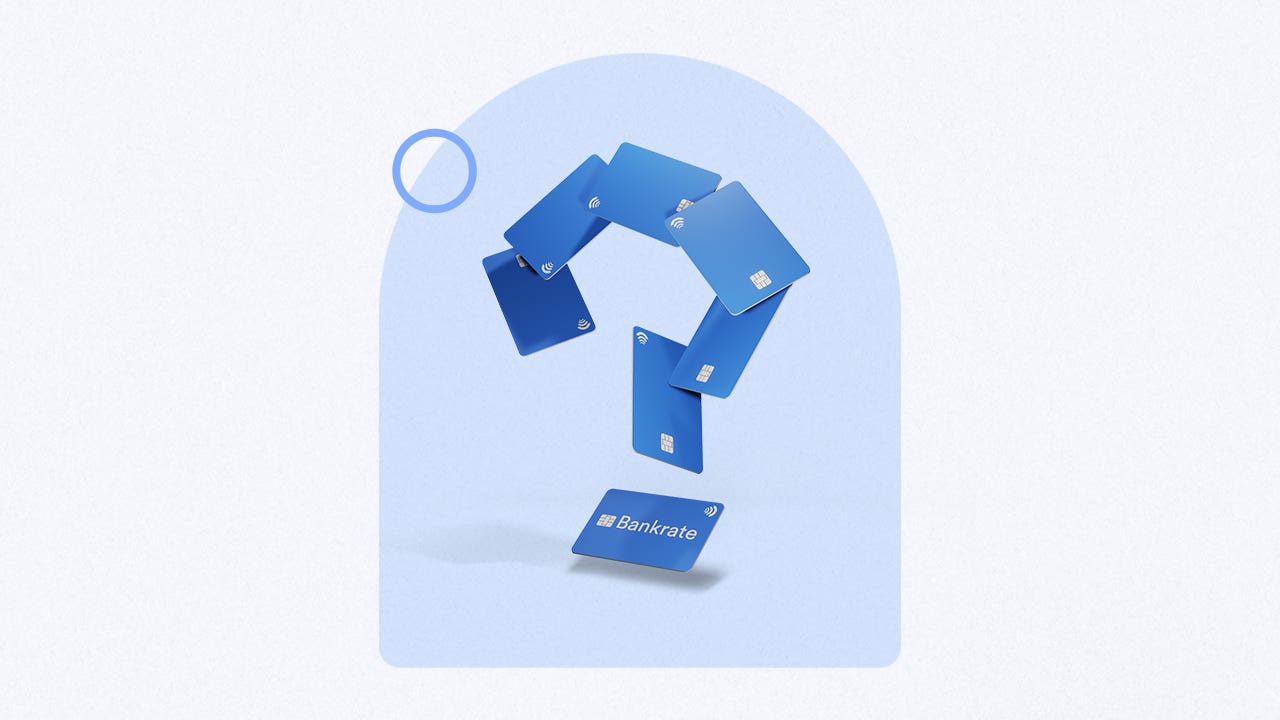What is a credit card?




Key takeaways
- A credit card is a useful financial tool that provides access to a line of credit that serves as a loan.
- You can use a credit card to build your credit, which is helpful for meeting future goals like homeownership.
- Debit cards are different from credit cards in that you can only access money you have in the bank, and they offer lower levels of protections than a credit card.
- Use your credit card wisely to avoid overspending and paying interest on balances accrued.
When used wisely, a credit card can be a powerful financial tool and a key part of building the credit that helps you achieve future goals like buying a car or home. You can also use credit cards to earn rewards, like cash back or points on purchases, and to take advantage of card benefits, like interest-free intro periods or fraud protection.
When choosing a card that’s right for you, it’s helpful to understand what a credit card is and how a credit card really works, including what different card-related terms mean. Here’s a quick primer on how these useful pieces of plastic work.
So, what is a credit card?
A credit card is a small revolving line of credit from an issuing bank that you can access with a small plastic card. This loan is subject to various interest rates, most notably in the form of an APR (or annual percentage rate) that’s charged to your balance if you don’t pay off your statement in full at the end of a billing cycle. It’s called “revolving credit” because you’re able to borrow as often as you’d like, up to a predetermined credit card limit, and repay the borrowed amount in installments.
Your credit limit is the maximum amount of money the card issuer will allow you to spend with the card. Issuers usually establish the limit based on your credit score, income, debts and other criteria they look at as part of the credit card application approval process.
How do credit cards work?
When you make a purchase with your credit card, one of four major payment networks (Visa, Mastercard, American Express or Discover) processes your transaction. Their role is to ensure the merchant receives money for the transaction and that your card issuer bills you for the purchase.
After you purchase goods or services with a credit card, that purchase amount is deducted from your available credit limit. And when you make a payment on your credit card account, that payment opens up available credit to use for future purchases.
Credit cards come with a lot of advantages, but there are a few drawbacks to using credit that you should keep in mind.
- Excess fees for missed payments or certain features
- You may accrue interest over time if you don’t pay your balance in full each month
- Without strong repayment habits, you may fall into debt
- You may not qualify for the card you want depending on your credit score
- They may hurt your credit depending on your usage
In most cases, the negative aspects of credit cards can be avoided by practicing responsible credit habits.
Important credit card terms
Before applying for a credit card, familiarize yourself with the type of language you’ll see associated with credit use.
Common credit card key terms
- Interest rate
-
Interest is a fee that banks charge on the line of credit they extend to their customers. Interest rates vary depending on the card and credit score of the person applying for the card. Generally, you can avoid interest on purchases by paying off your statement balance by the due date of each billing cycle.
Interest rates often vary among purchases, balance transfers and cash advances. Additionally, purchases are the only type of transaction that typically includes an interest-free grace period.
- Credit limit
-
A credit limit is the spending limit on a credit card. For people with limited or no credit history, your initial credit limit may only be a few hundred dollars. For veteran cardholders, credit limits can be much higher. The amount of credit you have to spend is called your “available credit”.
- Credit score
-
A credit score is a rating that allows lenders, including card issuers, to determine your creditworthiness — or the risk they take on by approving you for a loan or credit card. The scores of two popular scoring models, FICO and VantageScore, range from 300 to 850.
- Credit card balance
-
A credit card balance is the amount of money you’ve spent on your credit card and owe the issuer at the end of your billing cycle.
- Statement balance
-
At the end of each billing cycle, your statement lists the total amount of your purchases, payments, credits for any returns, any remaining balance from the previous month and any accrued interest or fees. The statement balance also helps determine your monthly minimum payment.
Types of credit cards
Each type of credit card has different uses, and some offer specific types of rewards. The card you choose will depend on your goals, personal financial situation and how you prefer to be rewarded for your purchases.
| Type of credit card | Primary benefit |
|---|---|
| Secured credit cards | Can be used to build credit for those with limited or bad credit history |
| Student credit card | Lower application approval standards for college students to build credit early and learn to use it responsibly |
| Balance transfer credit cards | Transferring balances from other credit cards to take advantage of low APR or zero APR offers |
| Travel credit cards | Earning miles or points toward future travel through your spending |
| Cash back credit cards | Earning a percentage of cash back on your spending to redeem for statement credits or a cash deposit to your checking account |
| Rewards credit cards | Earning points on your purchases to redeem for travel, merchandise or cash |
Credit cards vs. alternatives
You have several payment choices available, including credit cards, debit cards and personal loans. To understand credit versus debit, you need to know what credit cards can offer that debit cards can’t. This chart goes over some basic differences.
| Debit card | Credit card | |
|---|---|---|
| Payment handling | Swiping your debit card removes the money from your linked account as soon as the payment is processed. | Swiping your credit card means your card issuer pays the merchant, and you’re on the hook for paying your card issuer back once your billing cycle ends. |
| Consumer protections | Debit cards have less protection from fraudulent activity on a federal level than credit cards. | Credit cards have stronger federal protections from fraud in place, and credit card issuers often have zero-liability policies. |
| Perks and rewards | Debit cards typically do not offer rewards on purchases or other perks like extended warranties and travel insurance. | Credit cards can earn a wide range of rewards and may offer travel benefits, purchase protections and more. |
Generally speaking, a debit card gives you convenient access to your money, while a credit card lets you borrow against a line of credit. A personal loan is more similar to a credit card in that you’re borrowing money from a bank that you’re expected to pay back. But there are a few key differences, such as how you repay, your interest rate, and associated fees. Which payment type you choose ultimately comes down to your unique financial and spending needs.
Credit card rate, fee and pricing key terms
There are a host of potential fees attached to credit card use and understanding these fees is essential to avoiding them whenever possible.
How to choose a credit card
To choose the best credit card for you, follow these tips to find one that fits your needs and lifestyle:
- Know your credit score. You should only apply for cards for which you have a reasonable expectation of approval. According to Bankrate’s 2024 Credit Denials Survey, 19 percent of credit card applications were denied between March 2022 and February 2024. So, if you’re just starting your credit-building journey, skip premium rewards cards and focus instead on the top cards for people with no credit.
- Analyze your spending habits. Determine what category most of your spending already falls into. If you spend most of your budget on gas and groceries, find a card with high rewards for those purchases.
- Determine your goals. How can a credit card help you? Are you using it to build your credit, earn rewards, protect yourself from fraud or transfer a balance? Focus on one or two goals that your next credit card can help you achieve.
- Review welcome bonuses. If you’re deciding between multiple credit cards, it wouldn’t hurt to earn extra rewards or a statement credit from buying what you already planned to. Just make sure you would still find the card useful after you get the welcome offer.
- Understand the card’s fee structure. A credit card may have excellent rewards, but if you know you’re going to carry a balance, the interest rate could make it costly. Costs like an annual fee could make it unaffordable or inconvenient.
- Use Bankrate’s CardMatch™ tool. When you want to find the right credit card without spending hours on research, use Bankrate’s free CardMatch™ tool to find one that fits your finances. Answer a few quick questions, and get the best matches delivered straight to you.
Frequently asked questions about credit cards
Why we ask for feedback Your feedback helps us improve our content and services. It takes less than a minute to complete.
Your responses are anonymous and will only be used for improving our website.





